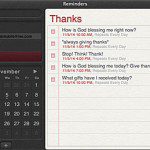Listen to My Prayer, O God!
Listen to my prayer, O God.
Pay attention to my plea.
 When I first moved to Texas, I was impressed by road signs I had not seen in California. One read: “Drive Friendly – The Texas Way.” You sure don’t see that in California, I thought to myself. Another sign read, “Don’t Mess with Texas.” The footnote on the sign clarified the intent: “Up to $2000 fine for littering.” One of the strangest signs, in my opinion, proclaimed: “Observe Warning Signs – State Law.” I figured that if somebody was inclined to ignore warning signs, that person would ignore this one as well. Whereas the sign-obeying person would not need a sign urging obedience. The “Observe Warning Signs” sign seemed to me either worthless or unnecessary.
When I first moved to Texas, I was impressed by road signs I had not seen in California. One read: “Drive Friendly – The Texas Way.” You sure don’t see that in California, I thought to myself. Another sign read, “Don’t Mess with Texas.” The footnote on the sign clarified the intent: “Up to $2000 fine for littering.” One of the strangest signs, in my opinion, proclaimed: “Observe Warning Signs – State Law.” I figured that if somebody was inclined to ignore warning signs, that person would ignore this one as well. Whereas the sign-obeying person would not need a sign urging obedience. The “Observe Warning Signs” sign seemed to me either worthless or unnecessary.
At first, Psalm 54:2 strikes me similarly. What good does it do to say to the Lord, “Listen to my prayer, O God”? Let’s face it, if God is not listening, then he won’t hear or respond to that request. If God is listening, then asking him to listen is unnecessary. So why bother? Why would we ever echo David’s request in Psalm 54:2: “Listen to my prayer, O God. Pay attention to my plea.”?
I would suggest that David’s example reminds us that prayer is more than an exercise in communicating factual information. Prayer is much more than asking God for things that make logical sense. Prayer is opening our souls to God and letting all of our messiness spill out. It’s crying out like a child to a parent, with freedom, urgency, and spontaneity. Yes, there are times when we pray in carefully constructed words of liturgy. And there are times when we groan before God in sighs too deep for words.
When I imitate David by saying, “Listen to my prayer, O God,” I’m not making a theological statement about prayer. Rather, I’m expressing my need, my hope, my desperation. This is the language of the heart rather than the head, of passion rather than reason. David teaches us that the language of prayer doesn’t have to be perfect. Rather, it expresses genuinely who we are, including our fears and insecurities, our dreams and desires. God doesn’t want us to pray perfectly. Rather, God wants us.
QUESTIONS FOR FURTHER REFLECTION: Do you ever ask God to hear your prayers? If so, what do you really mean when you pray this way? How free are you in your prayers? Do you feel as if you can bare your heart before the Lord? Why or why not? What helps you to pray with freedom?
PRAYER: Dear Lord, how thankful I am that I don’t have to speak to you with perfect words. You don’t want a good show from me. You want me, who I really am, with all that is good in me and all that is wrong. What an amazing privilege it is to be able to pray to you openly. Thank you!
Help me, Lord, not to hold back when I pray. Help me to lay before you all that I think and feel . . . indeed, all that I am.
All praise be to you, O God, because you invite me to approach your throne with boldness and confidence. I pray in the name of Jesus, who has opened the way to you. Amen.
_________________________________________________
 Would you like to receive a Daily Reflection like this one in your email inbox each morning?
Would you like to receive a Daily Reflection like this one in your email inbox each morning?
Here’s how . . . .
This devotional comes from The High Calling: Everyday Conversations about Work, Life, and God (www.thehighcalling.org). You can read my Daily Reflections there, or sign up to have them sent to your email inbox each day. This website contains lots of encouragement for people who are trying to live out their faith in the workplace. The High Calling is associated with Laity Lodge, where I work.











